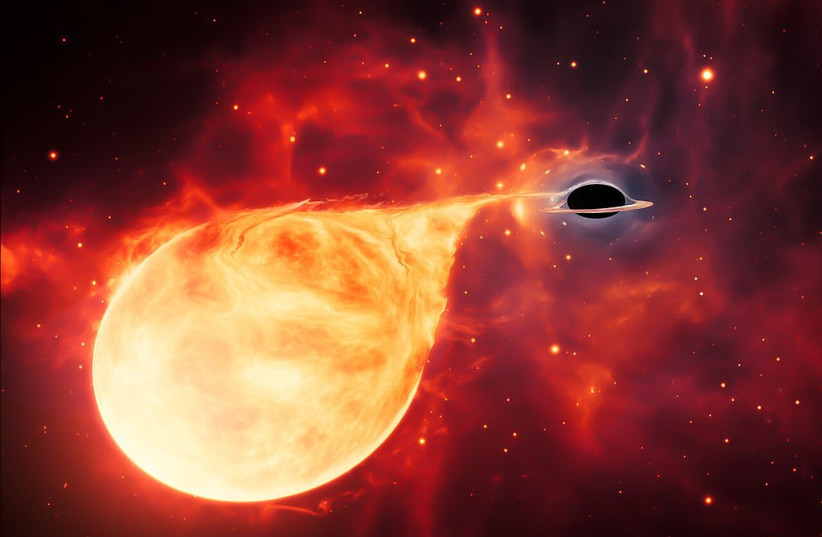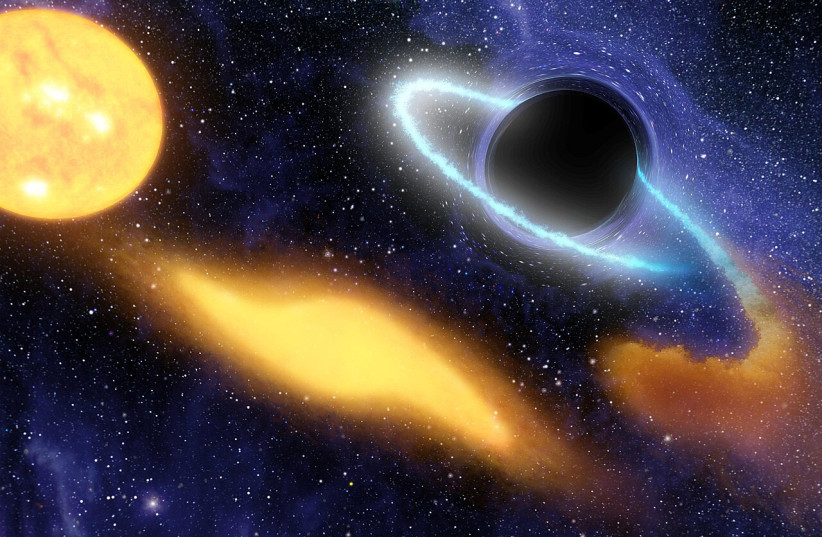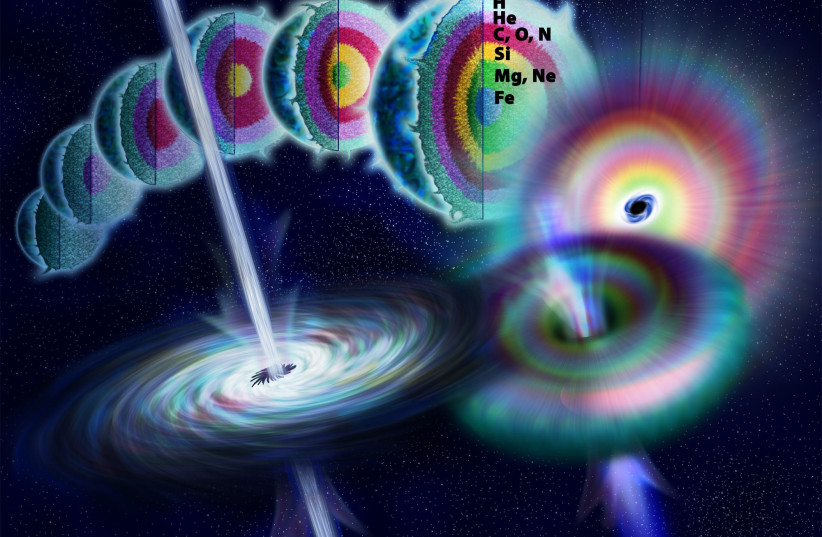Black holes, the gigantic remains of collapsed stars that are massive inescapable singularities of gravity, will eventually evaporate and fade into nothingness, something that Stephen Hawking predicted. But the same fate also awaits literally everything else, a recent study suggests.
Researchers from Radboud University in the Netherlands have managed to figure out that while Hawking was mostly correct about black holes, he may have missed something. And that something could mean that all things in the universe will eventually fade away and evaporate into nothingness.
The findings of this study were published in the peer-reviewed academic journal Physical Review Letters.
How do black holes die?
The topic of black holes, as well as the nature of their ultimate and still theoretical demise, is incredibly complex, built on years of research in both astrophysics and quantum mechanics.
The groundbreaking research by Hawking and numerous other researchers is, therefore, built on the incredibly dense academic literature that can be very difficult to understand.

But to simplify, here is a brief explanation of black holes, the relevant quantum mechanics, what Hawking's theories were, and what this new study claimed.
What are black holes?
To start, black holes are defined as intense concentrations of gravity formed when a large star dies.
The gravitational pull they possess is so strong that nothing, not even light, is able to escape. This has made black holes into something extremely mysterious; after all, no light means they can't be seen. The only way scientists were able to prove that black holes even existed was by being able to see how their gravity affects everything around it.
Technically speaking though, the level of gravity being so intense that it prevents light from escaping is only applicable up to a point. To oversimplify a very complex astrophysics phenomenon, before this point, light is still visible, and afterward, nothing can be seen.
This point is known as the event horizon, and once something crosses it, there's no coming back.
Quantum physics and black holes: Uncertainty, spontaneous creation, and annihilation
Quantum mechanics is a theory in the field of physics that studies how things are and work on a quantum level – on the same level as atoms or even subatomic particles like protons, neutrons, and even quarks.
This field of study is very vast and incredibly complex, but to simplify it as much as possible, a core aspect of quantum mechanics is that nothing is ever certain. Rather, everything can only be predicted in terms of probability.
To explain, say there is an electron. There is evidence that it exists and it can be measured. However, the more accurate one tries to measure it, working to pin down its exact position, a measurement about something else with that same electron – likely its momentum – will now be far less accurate.
This idea is known as the uncertainty principle.
Then there is quantum superposition, which is a principle related to the randomness of subatomic events where something can simultaneously be in two contradictory states at once so long as it isn't observed. This is arguably the most famous principle in quantum mechanics, having been highly popularized by Schrödinger's cat, which essentially illustrates the same thing.
As these indicate, quantum mechanics make little sense to those unfamiliar with them as they seem completely contradictory with common understandings of how physics works. This tendency of quantum mechanics to fly in the face of our understanding of how the universe works is something that some scientists have dubbed quantum weirdness.
How does this relate to black holes?
According to the rules of quantum mechanics, there is a certain process that occurs known as pair production. This is when a subatomic particle is created alongside its antiparticle. This does not refer to the idea of matter and antimatter but rather has to do with charges. Both particles were originally made from a neutrally-charged particle called a boson. One of these particles will have a positive charge and its corresponding antiparticle will have a negative charge.
For example, one subatomic particle is a positron, which has a positive charge. Its antiparticle is an electron, which has a negative charge.

However, these two particles can collide with each other. When this happens, the result is something known as annihilation. This doesn't fully destroy them, per se, but instead results in the creation of something new, such as photons.
What did Stephen Hawking discover about black holes?
Earlier, it was written that nothing can escape from a black hole – but that's not exactly true, and that's not referring to the ones that expel jets of matter, light, or radiation, because that's a different topic.
In the 1970s, research was done that determined that something indeed should be coming out of black holes: Radiation.
The theory is that particle pairs are constantly being created in an event horizon. However, they aren't colliding with each other and annihilating. Rather, because of the strong pull of a black hole, one of the particles might end up drawn in past the event horizon and into the black hole itself. That other particle, then, may end up escaping the event horizon and be propelled through space.
This sort of radiation that is created as a result is known as Hawking radiation. It's very small and faint, to the point that scientists do not yet have the ability to detect them, though Israeli researchers were able to measure Hawking radiation in a laboratory experiment in 2021. However, they can cause a black hole to eventually die.
The reason for this is that black holes need to keep growing to maintain their mass, pulling in more and more mass through a process known as accretion. But the fact that Hawking radiation is able to escape means that the black hole itself is slowly losing mass, to the point that eventually, it will shrink and vanish, evaporating into nothingness.
In other words: Hawking radiation is created by stealing energy from a black hole.
Stephen Hawking refuted? What a new study said about the demise of black holes and everything else
The researchers behind this new study argued that perhaps an event horizon isn't necessary to create Hawking radiation in the first place. The conditions could be present to allow for pair production even outside the horizon. It could rather happen in other parts of space.
To put that simply, Hawking radiation isn't just made by stealing energy from black holes: They're made by everything.
If everything can make Hawking radiation, then that would consequently mean that everything would shrink and eventually evaporate into nothingness in the exact same way as black holes.
This was determined with some careful and complicated mathematical calculations of pair production in a gravitational field without an event horizon. These pair productions were determined to result in similar levels of emissions of photons and, therefore, have similar consequences to Hawking radiation.
If true, it would mean everything would meet the same fate as a black hole.

Is this how we all die? Will the universe fade away into nothingness?
This study doesn't just challenge our understanding of quantum mechanics even further. However, it also holds implications for the inevitable fate of the universe itself.
However, more research is needed to better understand this. As is often the case with anything relating to quantum mechanics, the exact truth of it all is very uncertain.
